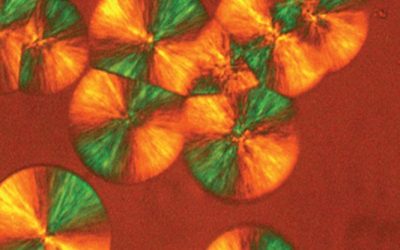On the second anniversary of President Barack Obama’s establishment of the Materials Genome Initiative, the Georgia Institute of Technology has announced the launch of its Institute for Materials (IMat). IMat is the newest of Georgia Tech’s nine Interdisciplinary Research Institutes.
It results from an investment of nearly $10 million that Georgia Tech has committed through 2018 to establish an interdisciplinary materials innovation ecosystem. IMat will play a leadership role in accelerating materials discovery, development and application.
Georgia Tech is one of the nation’s largest materials research universities. More than 200 faculty members are addressing major technologies in fields such as graphene, polymers and photonics. IMat will support and connect research programs across Georgia Tech’s traditional academic disciplines/units, while fostering a network of industry, government and academic research laboratories across the nation.
One major component of IMat focuses on strengthening the connection between the core research strengths in many aspects of materials research at Georgia Tech. This includes development of exploratory Web-based collaboration tools for materials.
“Whether we’re talking about high-efficiency, high-temperature jet engines, solar cells that generate electricity as inexpensively as coal, wind turbines that use magnets free of rare-earth elements, or the biocompatibility of replacement joints and implants, materials matter,” said Cyrus Wadia, assistant director for Clean Energy and Materials R&D in the White House Office of Science and Technology Policy. “The Materials Genome Initiative is catalyzing important collaborative advances from industry, academia and the federal government, so that together we can secure the nation’s future as a leader in this critical technological domain.”
The Materials Genome Initiative is a public-private endeavor that aims to cut in half the time it takes to develop novel materials that can fuel advanced manufacturing and bolster the 21st century American economy.
“Given the vision of Integrated Computational Materials Engineering and the Materials Genome Initiative, the Institute for Materials has an exciting opportunity to link emerging capabilities in materials design and development with advances in U.S. manufacturing,” said David McDowell, founding executive director of IMat. “Inevitably, solutions to the most pressing grand challenges of the coming decades hinge on new and improved materials. Use-inspired research gives rise to innovative products made from these materials that enhance the quality of everyday life. To this end, the innovation infrastructure envisioned by the Materials Genome Initiative calls for collaboration within and across institutions such as Georgia Tech.”
The other major component of IMat coordinates search of, and access to, distributed campus shared resources that support materials-related research and integrating these within the broader context of national user facilities. This will also benefit Georgia companies wishing to take advantage of Georgia Tech’s facilities and materials research expertise.
Source: Georgia Tech
















